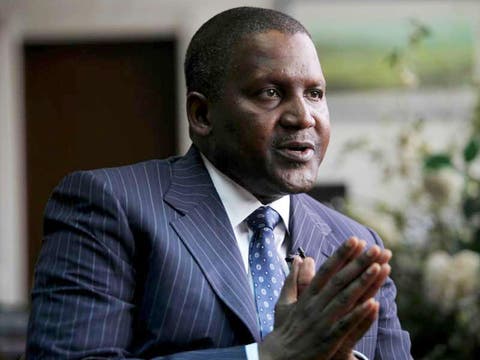
AMILOADED MEDIA HUB NEWS UPDATE
The Nigerian Midstream and Downstream Petroleum Regulatory Authority has disclosed that the Dangote refinery has not been licensed to begin operations in the country.
The Chief Executive Officer of NMDPRA, Farouk Ahmed, made this known while speaking with journalists at the State House, Abuja on Thursday.
Ahmed debunked claims that the regulatory body was attempting to scuttle the operations of the private refinery due to lack of crude oil supply from International Oil Companies.
He stated that the refinery is still in the pre-commissioning stage and has not been licensed yet.
He said, “There are lots of concerns about the supply of petroleum products nationwide and the claims by some media houses that we were trying to scuttle Dangote refinery, that is not so.
“Dangote Refinery is still in the pre-commissioning stage. It has not been licensed yet. We have not licensed them yet.”
He further explained that the request by Dangote Refinery to suspend or stop all importation of petroleum products would promote monopoly in the market and is not good for the nation in terms of energy security.
“I think they are at about 45 per cent completion. So we cannot rely heavily on one refinery to feed the nation because Dangote is requesting that we should suspend or stop all importation of petroleum products, especially automotive gas oil (AGO) or jet kero and direct
Ahmed also highlighted concerns about the quality of petroleum products produced by Dangote refinery, stating that their quality is inferior to imported commodities.
“So, in terms of quality, currently, the AGO quality in terms of sulfur is the lowest as far as a West African requirement of 50 ppm.
“Dangote Refinery, as well as some major refineries, like Walter Smith’s refinery, other refineries, they produce 650 to 1,200 ppm. So, in terms of quality, their quality is much, much inferior to the imported commodities,” he added.
Vice-President at Dangote Industries Limited, Devakumar Edwin, had accused IOCs of making it difficult for the company to access local crude oil, forcing them to use expensive middlemen and pay inflated prices.
Edwin claimed that while only one local producer, Sapetro, sells directly to DIL, others rely on non-Nigerian trading arms that add unnecessary costs.
He alleged that IOCs have consistently hindered the company’s access to local crude, often offering it at a premium of $2-$4 per barrel above the official price set by NUPRC.

Leave a Reply